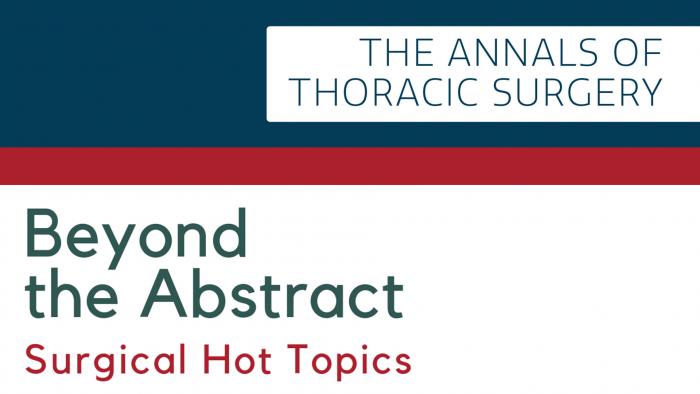The Society’s 56th Annual Meeting in New Orleans, January 25-28, attracted more than 4,100 registrants and 142 exhibiting organizations. To view meeting photos and read the STS Meeting Bulletin newspaper, visit sts.org/annual-meeting-archive.
Leaders Must Focus on the Positive to Overcome Challenges, Higgins Says
Sustaining the future of cardiothoracic surgery will require effective and collaborative leadership, as well as a positive outlook, to prevail over difficulties facing the specialty.
“Our profession has been and will continue to be challenged by an extraordinary number of issues,” said Robert S.D. Higgins, MD, MSHA, in his Presidential Address, “On Life, Leadership, and the Pursuit of Happiness.”
He cited several recent challenges, including concerns about public reporting, changing training paradigms, threatened reductions to Medicare reimbursement, and conflicting interpretations of scientific findings.
Dr. Higgins encouraged the next generation of leaders to put these matters into perspective and “orient their view toward opportunity, not crisis.”
He added that, of the things that really matter, only a few actually can be controlled. “Focusing on those that intersect between these two apparently immovable forces is the way forward,” he said.
There will be times when people have a difference of opinion, Dr. Higgins noted, and leaders should enable new ideas and opinions to percolate up, rather than always running down from the top. “For me, this was much harder than it appeared,” he admitted.
He also recommended a more flexible leadership style that takes into account the different work interests and expectations of generation Xers and millennials.
“In order to chart a new course, we have to still honor the past, but create a new map for a sustainable future—and we have to do it now,” Dr. Higgins said.
He concluded by encouraging the audience to have an optimistic outlook despite the difficulties. To achieve this positive mindset, Dr. Higgins recommended following eight practices outlined by Robert S. Sawin, MD, in a 2019 JAMA Surgery article, “Optimizing Joy in Surgery”:
Reflect nightly on three things for which you are grateful
Look for the humor in life
Be intentional
Be a leader
Be a teacher
Learn to cultivate compassion
Stay involved in the community
Consider accepting coaching
If cardiothoracic surgeons follow this advice, Dr. Higgins said, the specialty is likely to have a better future. “I believe that we have been most successful when we have a positive outlook on the daily challenges,” he said.
In addition to Dr. Higgins’s address, three other keynote lectures were delivered at the STS Annual Meeting: the Vivien T. Thomas Lecture, “The Saga of Vivien Thomas: Discrimination, Segregation, and Bias,” by Clyde W. Yancy, MD; the Thomas B. Ferguson Lecture, “M.E.G.A.: Make Evidence Great Again,” by Domenico Pagano, MD, FRCS(C-Th), FETCS; and the C. Walton Lillehei Lecture, “Bumper Car Innovation of Heart Pumps and Mechanical Lungs,” by Bartley P. Griffith, MD.
>Watch videos of all four keynotes at sts.org/56AMplenaries.
Award Winners Recognized for Outstanding Achievements
Distinguished Service Award
The STS Distinguished Service Award is bestowed upon those who have made significant and far-reaching contributions to the Society and the cardiothoracic surgery specialty. The 2020 recipients were Robert A. Wynbrandt, JD (left), and Robert L. Kormos, MD (right).
Earl Bakken Scientific Achievement Award
The Earl Bakken Scientific Achievement Award was presented to Sir Magdi Habib Yacoub, MD, who is estimated to have performed more heart and lung transplants than anyone else in the world—approximately 2,500. The Bakken Award honors individuals who have made outstanding scientific contributions that have enhanced the practice of cardiothoracic surgery and patients’ quality of life.
President’s Award
Arman Kilic, MD, from the University of Pittsburgh Medical Center in Pennsylvania, was the recipient of the 2020 President’s Award, which recognizes an outstanding scientific abstract by a lead author who is either a resident or a surgeon 5 years or less in practice. His award-winning paper was titled “Performance of a Machine Learning Algorithm in Predicting Outcomes after Surgical Aortic Valve Replacement: An Analysis of the STS National Database.”
Poster Awards
Adult Cardiac Surgery
Atrial Functional versus Secondary Functional Mitral Regurgitation: Prognostic Implications on Short- and Mid-Term Outcomes (Sameer Hirji, MD)
Congenital Heart Surgery
Defining Contemporary Determinants of Cost following Primary Tetralogy of Fallot Repair: A Nationwide, Multi-Institutional Cost Analysis (Philip Allen)
General Thoracic Surgery
Important Yet Undescribed: Use of Machine Learning to Elucidate and Predict the Impact of Intraoperative Variables on Thoracic Surgery Outcomes (Biniam Kidane, MD, MSc, FRCSC)
Quality Improvement
The Implementation and Effectiveness of Evidence-Based Opioid Prescribing Guidelines for Postoperative Pain Management after Open Transthoracic and Laparoscopic Hiatal Hernia Repair (Jennifer M. Burg, MD, MS)
Available Soon: STS 56th Annual Meeting Online
STS Annual Meeting Online provides access to more than 100 hours of recorded sessions and the ability to earn up to 126.5 CME credits. Annual Meeting attendees receive free access to Annual Meeting Online, while non-attendees can purchase the online product at sts.org/AMonline. Access is free for all Candidate and Pre-Candidate Members—even those who didn’t attend the meeting!
By the Numbers
2,351
professional registrants
62
countries represented by registrants
409
speakers
168
oral scientific abstracts and videos presented
142
exhibiting companies and organizations
20.3 million
social media impressions for #STS2020
Thank You
STS gratefully acknowledges the following companies for providing educational grants for the 56th Annual Meeting.
Platinum Benefactors
Provided $50,000 or more
Edwards Lifesciences
Medtronic
Gold Benefactors
Provided $25,000-$49,999
Abbott
Baxter
